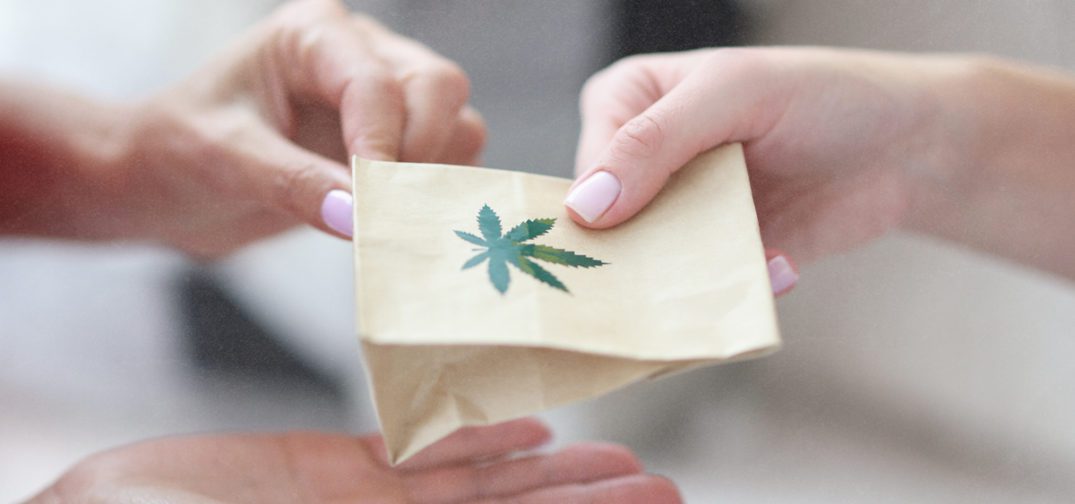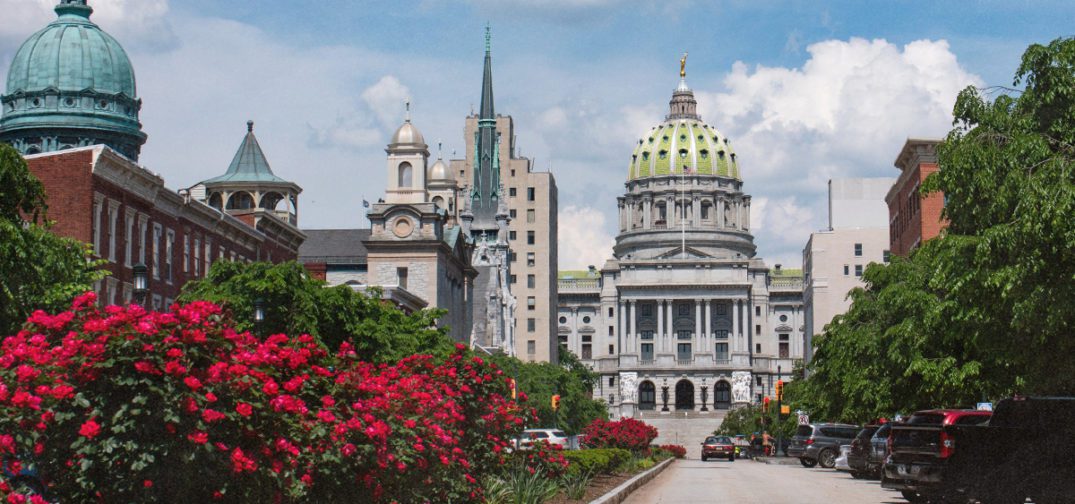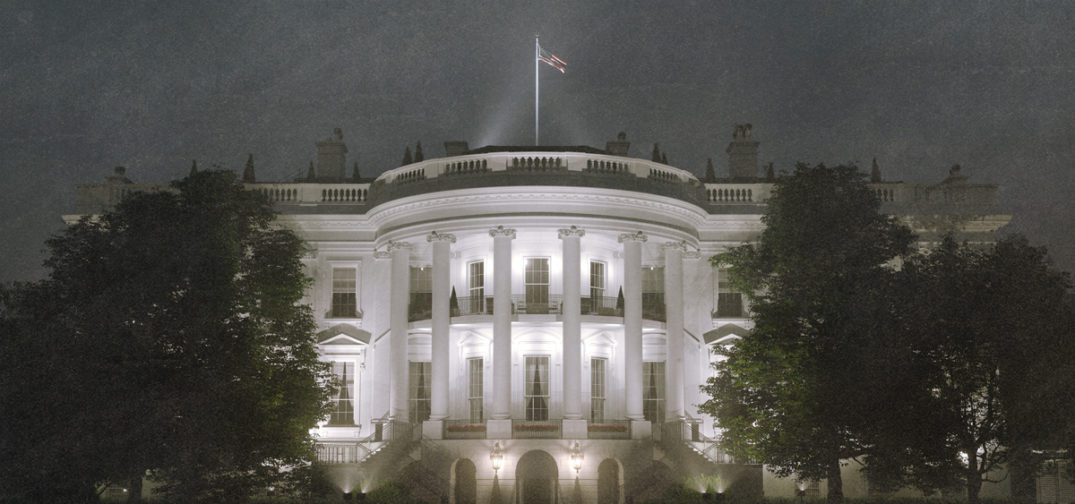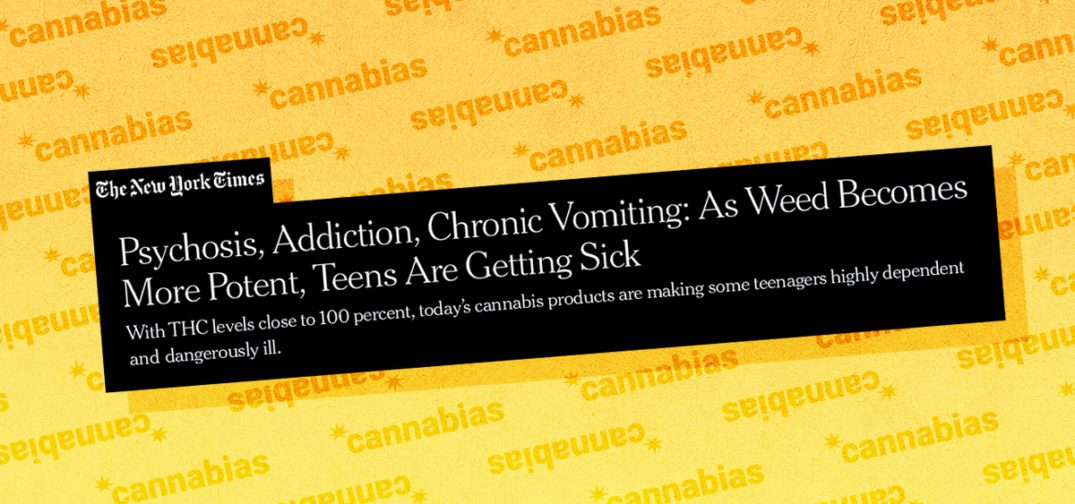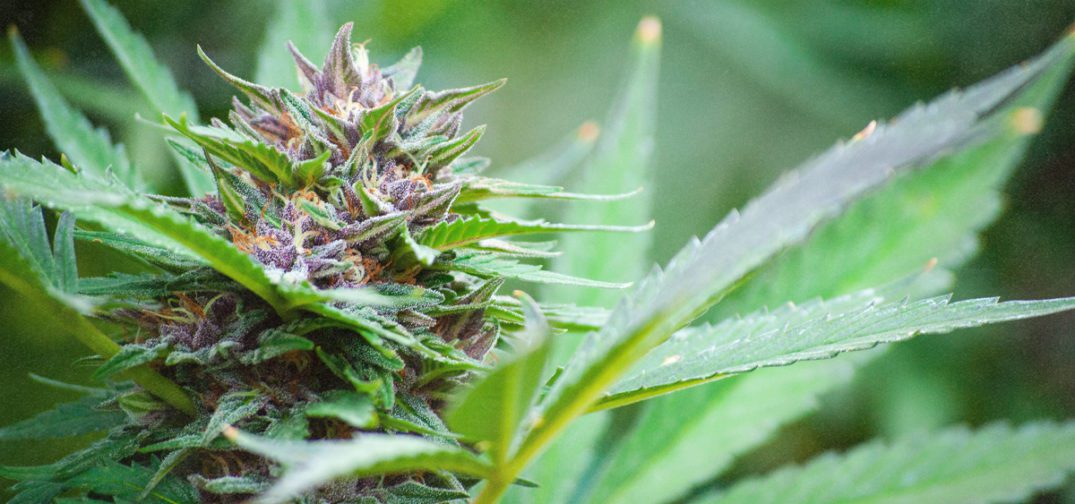Germany is in the process of establishing its adult-use cannabis legalization language — medical cannabis has been legal in the European country since 2016. Some posit that legalization in Germany will inspire other European countries to legalize and regulate the plant. Siblings Nik and Anna-Sophia Kouparanis founded The Bloomwell Group to provide medical cannabis to Germany’s patients; now, they are excitedly preparing for recreational sales through their brand ecosphere and e-commerce platform.
Ganjapreneur recently interviewed Nik Kouparanis, CEO and Co-Founder of The Bloomwell Group, about his drive as a cannabis entrepreneur, building the brand ecosphere, and for an analysis of impending cannabis regulations in Germany.
Keep scrolling to read more!
Ganjapreneur: What inspired you to enter the cannabis space?
Nik Kouparanis: My professional goal has always been rooted in entrepreneurship. In the long term, I never wanted to work for someone else and, instead, ventured out on my own to create something impactful.
I earned my Master’s degree in Management and in 2017, I wrote my thesis on the potential of upcoming cannabis legalization measures, with medical cannabis being the door opener. Around this time, I became involved with the medical cannabis industry, and to-date I have been in the industry of building cannabis companies in Germany for over five years.
I started working in the cannabis industry because I’m 100% convinced that this is a once-in-a-lifetime opportunity. A completely new global market that is rising from scratch! Along with my sister Anna-Sophia Kouparanis, who co-founded Bloomwell Group with me, we are among the first entrepreneurs in the country to successfully gain a foothold in the medical cannabis market. Now, we’re preparing for the adult-use market. It’s an extremely exciting time to be a part of the cannabis space in Germany.
How have your entrepreneurial experiences prepared you for the challenges faced while founding a cannabis business?
I’m a cannabis entrepreneur through and through, dedicating 100% of my efforts to this industry. Every single company I have built has been a cannabis entity. Right after earning my Master’s degree, I started to scale companies in the German industry. What I can say is that cannabis is one of the most strictly regulated and complex industries. Therefore, I’ve needed to learn very quickly in this new and ever-changing environment.
Despite all its challenges, I cannot imagine a more exciting industry for entrepreneurs. We’re in the middle of a global change and a paradigm shift in cannabis policies. Even though we can’t exactly predict what tomorrow’s cannabis world might look like, and you always need to be quick and flexible, we’re in the middle of building something very big with an immense social and economic impact.
The Bloomwell Group is self-described as a brand ecosphere. What is a brand ecosphere, and how does this approach benefit The Bloomwell Group?
Bloomwell Group seeks to redefine the cannabis industry and craft a new episode in its history. Our vision is for Bloomwell Group to become the number one brand ecosphere in the recreational cannabis sector. We are convinced that it’s time to switch lanes and move cannabis beyond its sole purpose as an ailment-relief treatment for patients. We believe in cannabis as a statement by people who dare to tap into themselves and live an elevated, modern and community-driven life.
The Bloomwell Group is building a synergetic platform that guarantees spill-over effects for all portfolio companies, creating an open ecosphere with a one-stop shop for patients and customers, complete with an end-to-end e-commerce experience (which we already operate under our medical cannabis umbrella). Currently, the licensed distributor Ilios Santé, Europe’s leading cannabis telemedicine company Algea Care, and Breezy Brands are part of the Bloomwell Group.
The company is developing relationships within each sector of the cannabis supply chain except cultivation. Why did the team decide not to enter the cultivation space?
We don’t have specific expertise in cultivation and consider this business to be highly competitive. That said, cultivating cannabis for the German market will become a commodity like in every other industry. It’s important for companies and brands in the space to develop strong partnerships with in-demand cultivators in order to ensure a high-quality output and the uniqueness of our genetics.
How has The Bloomwell Group helped develop telemedicine in the German cannabis market? Why was this a priority for the brand?
Our portfolio company Algea Care was launched in Autumn 2020 and filled an important market need at a time when many businesses were focused on imports and distribution, which is a highly competitive environment. Instead, Algea Care addressed a key issue for medical cannabis patients: the lack of medical expertise in the cannabis field. Many patients were, and still are- struggling to find doctors who are willing and able to prescribe them medical cannabis to address their needs. Algea Care was the first German company to combine telemedicine specifically with prescription drugs labeled narcotics. To date, we’ve helped 10,000 patients with chronic diseases who didn’t have any access to medical cannabis expertise before. However, it’s still a struggle in Germany to find physicians who understand the full potential of medical cannabis, but we’re doing our best to close this gap.
How does The Bloomwell Group normalize and educate on cannabis medicine in the medical community?
The amount of existing scientific evidence on medical cannabis treatment in Germany, both regarding safety as well as efficacy, still needs to be improved. The data generated from patient treatments via the Algea Care platform is already being used for academic research in multiple clinical studies. These results will be crucial for further destigmatization of medical cannabis among patients as well as the medical community. In addition, we focus on continuous education of doctors via Algea Care. We are currently in the process of having educational courses obtain CME certification.
Did you consider adult-use legalization as you built out the medical cannabis brand ecosphere to ensure a seamless transition into the new regulations?
When we closed our seed round in October 2021 (at that time, the highest seed funding for a European cannabis company), we raised this capital with a clear focus on the medical market. That said, as we approach the legalization of adult-use cannabis in Germany, we seek to be in a prime position when the recreational market opens. Therefore, we will raise another round to prepare. Under the Bloomwell umbrella, we currently have three different subsidiaries. We will be able to serve the whole value chain (excluding cultivation, as previously mentioned). Looking at the North American markets, it’s crystal clear that the leading medical cannabis companies have the network, expertise and access to supply to be the early movers and shakers building the adult-use market. Also, our leading telemedicine platform, Algea Care, has gathered a great deal of data that can be utilized when setting up the adult-use market, including data useful for education. We also have our brand Breezy, which focuses on direct-to-consumer services, which we expect to seamlessly expand from medical to recreational sales.
What is Breezy?
Our portfolio company, Breezy brands, runs a purely Direct to Consumer / Direct to Patient operation. Patients and consumers can choose from a variety of lifestyle products. In addition, the delivery of various medical flowers for patients will be rolling out soon. Breezy brands is the place to be for all people in Germany associated with cannabis. We are prepared to be the one-stop-shop for the growing cannabis community.
What product standards do you look for before absorbing a brand into The Bloomwell Group?
With regards to a medical cannabis company or brand, we need for them to meet European Union Good Manufacturing Practice (EU GMP) and Good Agricultural and Cultural Practice(GACP) standards. While standards and regulations are yet to be determined for Germany’s future adult-use industry, we know that the country will prioritize consumer safety, education, protection of minors and product quality.
Along with fulfilling the mandatory standards, quality control and assurance is crucial. Data from the U.S. market shows that in the long term, only brands that can guarantee quality will survive and thrive.
Have German cannabis entrepreneurs learned lessons from the developing American industry? Alternatively, what can American cannabis businesses take away from the developing German market?
Germany is closely watching the developing American cannabis industry (as well as licensed markets around the world) both for what to do and what not to do. Germany wants to protect minors, educate consumers and guarantee product quality. Therefore, we need to eradicate the illicit market. Looking at the United States, we see that certain states’ licensed industries perform and compete with the illicit market better and more effectively than others. For example, in California, the sky-high taxes placed on licensed cannabis products have allowed the illicit market to continue to flourish by offering consumers less expensive products. This is a lesson learned for Germany to shape the tax burden along the value chain in such a way that the industry can supply the market in an entrepreneurial way and offer consumers products at appealing price points. That way, we can compete with and eventually eradicate the illicit market.
In Germany, we’ll also need to minimize bureaucratic hurdles and convoluted regulations. We should design a bureaucracy in such a way that it contributes as much as possible to the achievement of objectives that include ensuring a stable supply and a nationwide sales infrastructure. Also, we need to allow imports to ensure competitive pricing.
What are your predictions for legalization in Germany? How might regulated cannabis sales in Germany impact the market worldwide?
Germany will become the largest market in the world when we open up the adult-use market with more than 82 million inhabitants, which is more than that of California and Canada. The future language for cannabis will be German, and this will be the flagship market once adult-use legalization takes place. A representative survey conducted by Bloomwell shows that one out of every two adults in Germany is a potential legal cannabis consumer.
According to the latest projections by economist Justus Haucap, the state could achieve an annual plus of 4.7 billion euros through the legalization of cannabis combined with various tax revenues (including cannabis tax) and savings (including judiciary and criminal prosecution). According to Haucap, 27,000 new jobs could also be created.
I’m certain that Germany’s licensed adult-use market will lead to a new paradigm of cannabis policy in the European Union, as well as around the globe. In Europe, we see many countries such as Malta, Luxembourg, Spain, the Netherlands, as well as Switzerland as part of the Schengen area, seeking new ways to deal with cannabis through pilot projects or through decriminalization. While that is a form of progress, it’s important to note that decriminalization as the only legalization measure is not enough; only a fully licensed adult-use market can ensure protection of minors and guarantee product safety. Therefore, I’m convinced that many European countries will follow Germany’s way of legalizing the adult-use cannabis industry. That said, I would like to emphasize that Germany should not rush its draft of the legislation and regulations; meticulousness and attention to detail are more important than speed. It can only become a role model for other countries if the legal framework is 100% waterproof.
You attended the most recent hearing on drafting cannabis legalization in Germany, what can you say about the regulations thus far?
Germany’s Federal Health Minister Karl Lauterbach made a remarkable statement – that cannabis in moderation is part of modern society. He also rightly emphasized that cannabis is not just a phenomenon in big cities, but also in rural areas. All the more our explicit reference to the fact that we cannot build up a nationwide sales infrastructure without online and mail order business. In addition, legal sales must not be limited to pharmacies, we need licensed brick-and-mortar specialty shops and online retailers.
In principle, we at Bloomwell Group welcome the federal government’s approach of involving many different groups, including those from civil society, in the process. The cannabis movement is a societal issue and we want society to have a say in the future of cannabis. With the Bloomwell Group, we also stand behind the overarching goals of youth and health protection, education and prevention. We very much hope that the experience of the industry from more than five years of medicinal cannabis will be taken into account. Because more regulation does not mean more youth protection. On the contrary, we need efficient processes above all so that the industry can supply cannabis consumers safely and reliably in the future.
Our central demands are, therefore: Firstly, to allow online mail order and licensed cannabis specialty shops and retailers; second, to regulate the cannabis trade in a very targeted manner; third, to design taxes in such a way that the legal industry can also compete with the prices of the illegal market; fourth, to set uniform standards nationwide.
The Bloomwell Group acquired millions in funding. Do you have advice for fellow entrepreneurs who are seeking funding?
Cannabis is highly regulated and already very competitive. If you’re looking for high amounts of venture capital, make sure that your team is made up of experts in the field, and your business is doing something different than all the others – and that this difference adds a lot of value for your consumers.
Thank you to Nik for answering our questions! Learn more about The Bloomwell Group at bloomwell.eu.




